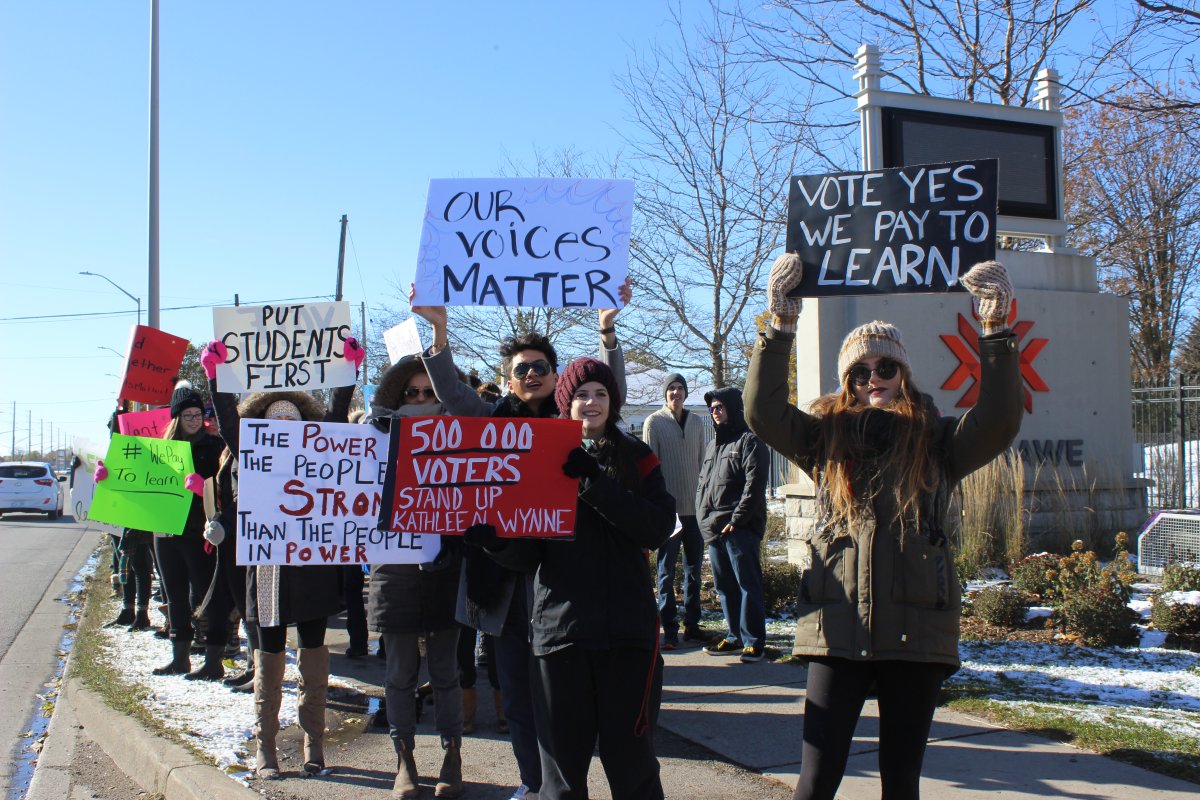The end of a more than month-long college strike is on the horizon, now that the provincial government has tabled its back to work legislation.

The Liberals tried to both introduce and immediately pass the bill Friday, but it hinges on all parties’ unanimous consent — and the NDP are forcing rare sittings on Saturday and Sunday for debate.
Students will be back in the classroom two days after it passes.
Although it’s unclear what the rest of the fall term will look like, Fanshawe College announced winter classes won’t start until at least January 22nd, and maybe even later.
In regards to back-to-work legislation, the president of OPSEU local 110 which represents Fanshawe’s full-time faculty, Darryl Bedford, says the union knew it was a possibility.
“Really for us, this is just the beginning of the end because what it means is we’ll be in front of an arbitrator, making our case, presenting the results of the vote, presenting the language that both sides had tabled,” he explained.
Striking faculty no longer marched the picket lines at Fanshawe College Friday afternoon. Inside the school, the few students walking the halls harboured hard feelings towards their teachers.
- Life in the forest: How Stanley Park’s longest resident survived a changing landscape
- ‘They knew’: Victims of sexual abuse by Ontario youth leader sue Anglican Church
- Carbon rebate labelling in bank deposits fuelling confusion, minister says
- Buzz kill? Gen Z less interested in coffee than older Canadians, survey shows
“They can’t really do much either,” said second-year student Nikki Holden, who admitted she’s going to feel “pissed off” when she sees her teachers again for the first time.
“It gives me a lot of anxiety, thinking about next week and going back.”
Around 500,000 Ontario students have been out of class since the strike by 12,000 professors, instructors, counsellors, and librarians began Oct. 15.
The Liberals first attempted to introduce the legislation Thursday evening after restarted talks between the colleges and the union reached an impasse, but the NDP blocked that attempt, saying they couldn’t support legislation that takes away workers’ rights.
Unanimous consent by all parties was needed to introduce the bill because it was outside the normally scheduled time period for that.








Comments